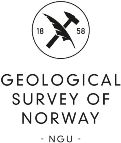
(Last updated: 29.01.2025)

|
Norsk versjon | ||||
| THE ORE DATABASE | |||||
| Occurence 4630 - 011 Hosanger (Lien) | |||||
| (Object Id: 4819) (Last updated: 29.01.2025) |
|||||
|
|
| Location |
| County: | Vestland | Municipality: | Osterøy (4630) |
| Map 1:50000: | Stanghelle (1216-3) | Map 1:250000: | Bergen |
| Coordinate system: | EU89-UTM Zone 32 |
| East: | 306853 m. | North: | 6718429 m. |
| Longitude: | 5.4768630 | Latitude: | 60.5552910 |
| Show on map |
|
|
| Resource |
| Resource Type: | Ferroalloys (Cr,Ni,Co,V,Mo,W) | Resource Subtype: | Nickel | |
| Element(s): | Ni Cu |
| Importance |
| Raw material meaning: | Little Importance (reg. 18.02.2015) |
| Resources and production |
| Activity: | Mining | Reserves: | ||
| Operating method: | Underground mining | Historical production: | 120 thousand tons |
Products |
| Element/product | Crude ore grade or quality | Reg. date | |
| Ni | 0.52 % | 29.01.2025 |
Operations |
| From - To | Activity | Comments | |
| 1915 - 1920 | Test mining | Company/Institution :Kristiansand Nikkelraffineringsverk A/S | |
| 1938 - 1943 | Regular production | Company/Institution :Kristiansand Nikkelraffineringsverk A/S |
Mineralization |
| Era: | Proterozoic | Period: | Mesoproterozoic | |
| Genesis: | Orthomagmatic formation | Form: | Irregular | |
| Main texture: | Structureless | Min. distribution: | Massive (>50 % ore minerals) |
| Main grain size: | Medium grained (1-3 mm) | Main alteration: |
| Strike/Dip: | Direction: | |||
| Plunge: |
| Stratigraphic classification of host rock |
| Era: | Proterozoic | Period: | Mesoproterozoic |
| Province: | Caledonian Basement Province | |
| Geotec.unit: | Lindås Nappe Complex | |
| Tectonic complex: | ||
| Igneous complex: |
| Group: | Formation: |
Lithology: |
| Relationship | Rock | Origin | |
| Host rock | Norite | Intrusive Original rock :Norite |
Information(s) in free text format |
| Free text |
| De første kjente undersøkelsene ved Lien på nordsiden av Litlandsvatnet ble gjort i 1915. Fram til 1920 var det tatt ut 5450 t malmholdig berg, hvorav 3 900 t ble skeidet til 335 t med 1.5% Ni og 0.5% Cu. Driften ble tatt opp igjen i 1938 og ble drevet fram til 1942. Deretter ble det drift på den nedforkastede del av malmen Lien II, også kalt Smith Meyers gruve, i 1943. Denne var imidlertid fattig, og driften ble innstilt etter bare noen måneder og uttak av 20 000 t malm. Det er beregnet at det totalt er tatt ut 120 000 t malm i Liengruvene med gjennomsnittlig 0.52% Ni. Stollinngangen er i dag gjenmurt og gjenfylt og det er ingen tilgjengelige mineraliseringer å finne. |
| Photo(s) from the Deposit area: |
|
Bibliography: |
| From NGU's Reference Archive: |
| Bjørlykke, Harald , 1949 |
| Hosanger nikkelgruve. |
| ;Norges geologiske undersøkelse;TIDSSKRIFTARTIKKEL;NGU; No.172;1-38 pages |
| Abstract: | |
| (forkortet) The Hosanger nickel deposits are situated on the western coast of southern Norway, about 20 km NE of Bergen. Nickel ore has been produced in 4 mines, Nonås, Litland, Lien I, Lien II Smith Meyers mine). The mining district at Hosanger belongs geologically to the Bergen Arch System which has been described by C.F. and N.H.Kolderup (1940). During the geological mapping it was only possible to distinguish two types of rocks: the intrusive gabbroic rocks which on the map has been named gabbro, and the surrounding migmatic gneisses with. The gneisses are of very different composition including granite gneisses with mineral composition: microperthite, quatrtz, oliggoclase, biotite, chlorite, garnet and epidoter and albite- zoisite-gneisses with quartz, albite zoisite and biotite. The intrusive has been the shape of a phacolite chiefly composed of noritic rocks, analysis of which are given in table 1(p.12) together with an analysis of ore diorite from the Flåt nickel mine in Setesdal, Southern Norway. J.H.L. Vogt (1923) has calculated the following mineral composition from the analysis of ore norite from Hosanger: Labradorite 20, hypersthene (with 27 FeSi O3 and some diallag) 60, amphibole 12 and biotite 5. |
| The fact sheet was created on 01.07.2025 |
| Questions or comments regarding the fact sheet can be emailed to: ressursdatabaser@ngu.no |
| Copyright © 2025 Geological Survey of Norway |